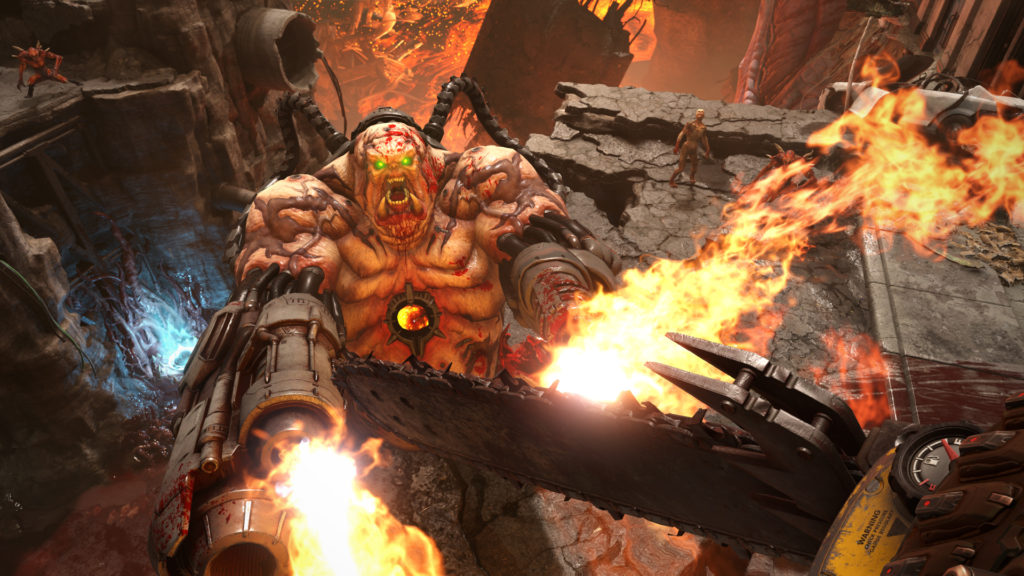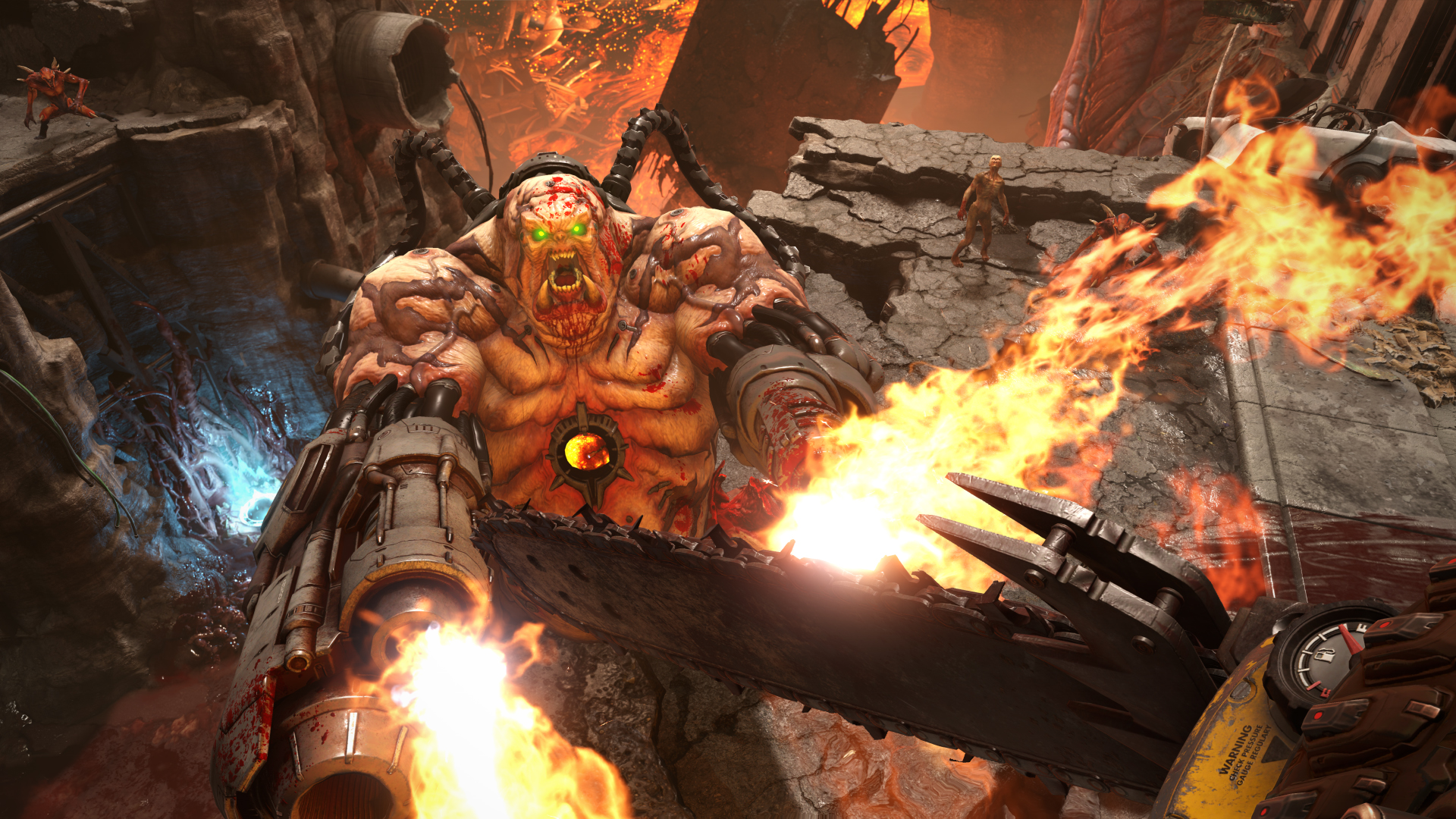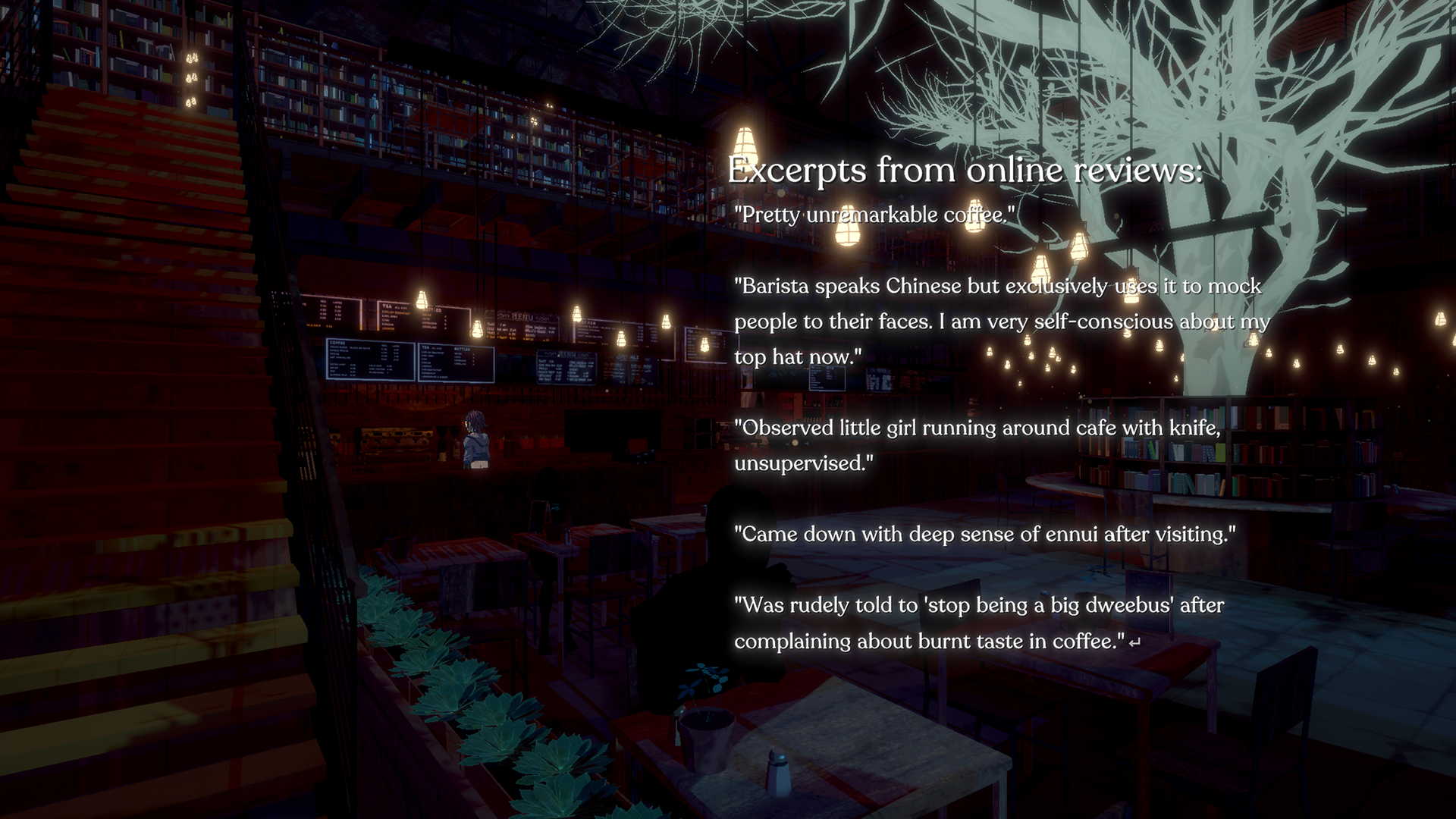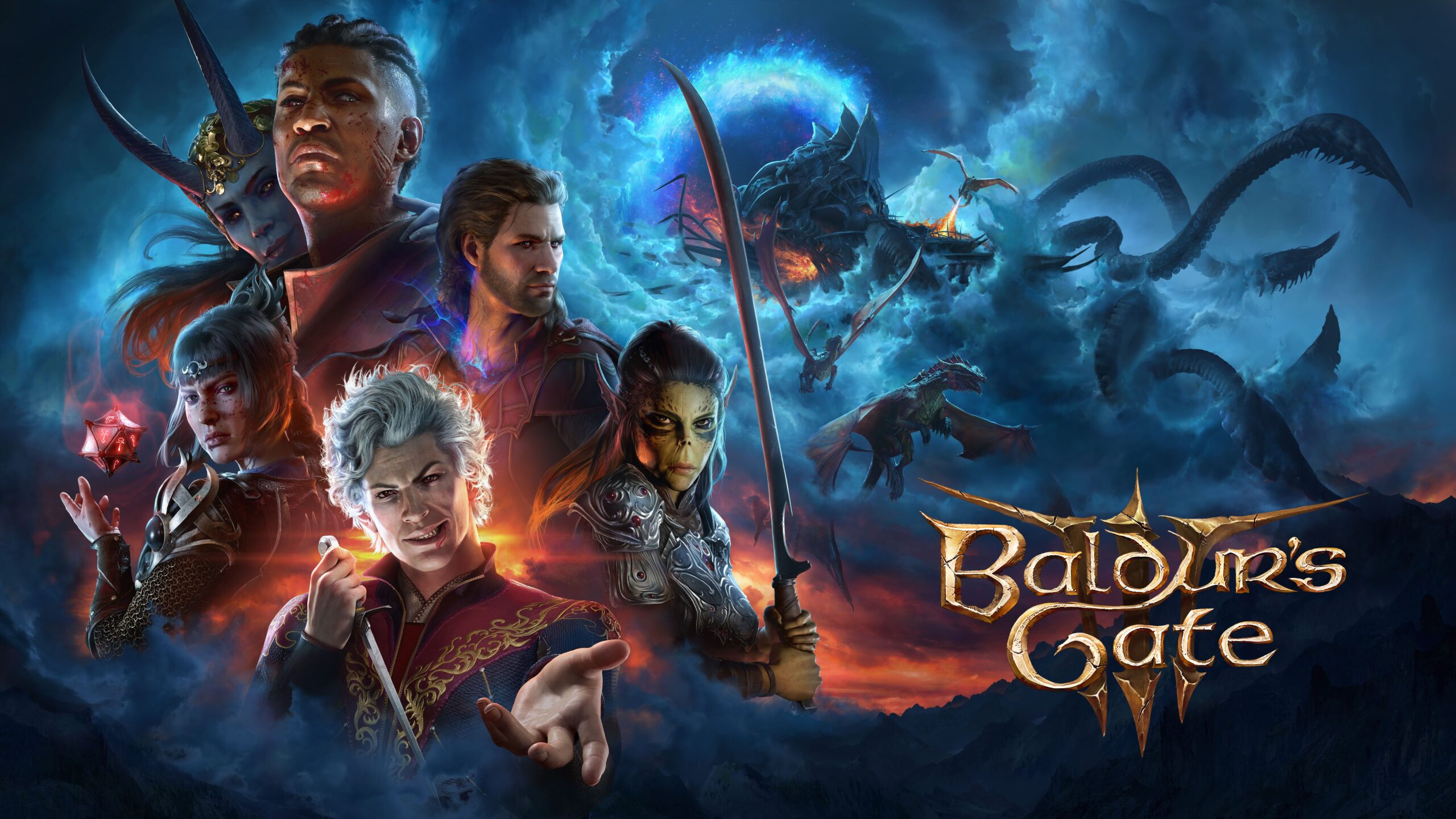
Doom Eternal, Mortal Shell, and Necrobarista: Through the Darkest of Times
I’ve found writing this love-letter difficult, not only because I’m writing about three separate video games that have managed to pull me through this awful year, but because each of these games are love-letters in themselves. Whether they pay homage to past games, to genres, or to wider themes, the three games that have pulled me through this year are each dedicated to something, so in this time of giving, it’s only fitting that I dedicate something to them.
How does one start such a letter addressing these feelings? By talking about punching demons in the face, of course. The UK’s first lockdown began a few days after my 25th birthday, and in recognition that I was likely to be gaming just a little bit more, Doom Eternal was placed in my possession just before that lockdown started. It was this game that kept me going. My partner has helped too, when they aren’t reminding me that the Doom film, unfortunately, exists. They’ve called it a “pristine cinematic experience” on more than one occasion.

When I needed distracting from a very real terrifying new global situation, venting those emotions into fictional, but similarly terrifying demons, definitely helped. Doom reminded me that 2020 didn’t need to be just a survival-mode year, that I could find fun and enjoyment in games even when seeing friends and loved ones was denied to me. In a sense, I felt like a child all over again, though fulfilling all the responsibilities of working from home and living away from my family.
As someone who can’t work without a dedicated routine, I built my new structure around Doom Eternal of all things. But, there’s nothing wrong with finding method in I’d Software’s madness. Every action you take matters every time you set a zombie on fire before bisecting it with a chainsaw, or enact a blood-spattered glory kill, or yank yourself towards a roaring demon with a literal meat-hook, it all plays a part in completing an encounter or level. It isn’t just about surviving, but how you survive. Doom Eternal allowed me to connect with old friends about a shared experience in a game, giving us a break from our other shared experience at the time.
In a year that has been its own brand of hellish chaos, it’s nice to visit a simple, classic tale of man meets demon, demon tries to kill man, man becomes demigod. It’s been many months since I’ve been outside for any length of time and felt safe – the pandemic has hit me pretty hard, but sharing stressful Battlemode games with friends, laughing at the sheer audacity of the game’s violence, allowed me to reconnect when, as an autistic person, the sudden shift to lockdown could have been far worse for me. Maybe I am losing it a bit, but who’d have thought that Mr. Rip-and-Tear would be a character that I would find supportive?

The Soulsborne genre has exploded this year. With Nioh 2, Sekiro: Shadows Die Twice, and even Demon’s Souls making a return in 2020, it was a much smaller game that filled my “difficult game Errol can rage at” spot for the year. Cold Symmetry’s Mortal Shell isn’t ashamed of its Dark Souls roots: the team knew precisely what to keep, what to add, and what to cut. It’s like playing a more player-friendly, more accessible form of the genre. Who’d have ever thought “accessible” and “Soulsborne” could exist in the same world? You’re allowed to take risks, using your Harden ability to tank deadly attacks like you’re some kind of messed-up Ghost-type Metapod, and the game lets you inhabit an undamaged shell when your own is destroyed. I wouldn’t call this a Soulslike with “training wheels” or “for beginners”, it’s still got all the tools that made its gameplay loop fun and challenging, but it’s streamlined. Most importantly, I felt no pressure to “git gud”.
As my hands become more painful and my ability to play games becomes more difficult, having new, friendly tools makes me far more hopeful for the genre. You begin the game frail, and while the shells you inhabit are powerful, they’re temporary, and once your shell cracks, you are always just that – frail. This year has definitely made me feel frail, too, and it’s been one hell of a slog just to make it this far while seeking out up to date diagnoses for my conditions while 2020 kept throwing curveballs our way. Mortal Shell is something new, yet familiar, my gaming equivalent of that moment at the end of Ratatouille, but with fewer culinary vermin. It’s an experience similar to ones I enjoyed when I was younger, when my finger joints didn’t dislocate so frequently and I was able to play, and finish, a From Software game. It’s been great to enjoy something that almost feels like a fond memory. And, hell, at least the only frail thing getting its face punched in isn’t me.

From two fast-paced games to a slower-paced visual novel that is, without a doubt, emotionally and visually one of the most beautiful games I’ve played. In a year where many people, myself included, have lost so much, having Necrobarista release in 2020 felt apt. The game mixes real-world history to ground it in somewhere you can recognise, and pairs that with a main theme that feels so natural to so many people: moving on. Discussing selfishness, how important it is to make the most of the time you get, and to let go when the time is right, Necrobarista takes the beauty of the visual novel and builds a world that feels like it could be real – a story where character interaction is centred, where relationships feel real.
For all the lessons about letting go, I realised that I couldn’t let go of many things, Necrobarista included. Its charm and humour, its aesthetic brilliance, kept me coming back, exploring more and more of the smaller memories around the Terminal, and in time, I realized how selfish I was being, holding onto these characters. Much like the past, this game is a linear narrative. In my second and third playthrough I knew the beats of the story and yet still, kept playing. I couldn’t change the narrative, but I could learn more, experiencing the same sadness over and over again in return. It almost felt unfair, making Maddy, Chay, Ashley and the rest experience the same tale.
So, I made a choice to let go: for now, the game is uninstalled, not out of any negative feelings or dislike of it, but because I felt it important to move on from 2020. This games might have pulled me through the end of a tough year, but games can bring back memories of those same experiences. The games spark joy, yes, so it’s less of a Marie Kondo-esque clear out, but it’s important to keep moving forward, and for me, that includes the games that motivate me. Much like the Mass Effect series brings back fond memories of my childhood, replaying these games brings back things that I might not be ready, or able, to fully deal with. I’m thankful that they’ve provided stability, an emotional impact, and places to reflect on a time where I’ve been tested, and hopefully, come out better.
I look forward to when I can replay them without raw feelings dictating how I look at them. Until then, I’ve been told that Control is amazing, and all things considered, since I’m looking for new experiences, I think I could start 2021 with some more of that in my own life.






1 thought on “Doom Eternal, Mortal Shell, and Necrobarista: Through the Darkest of Times”